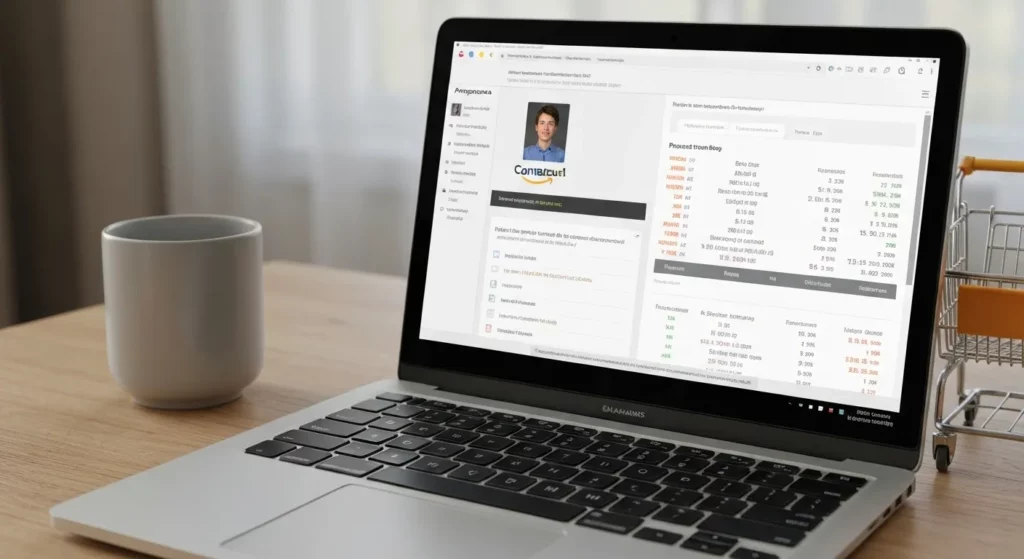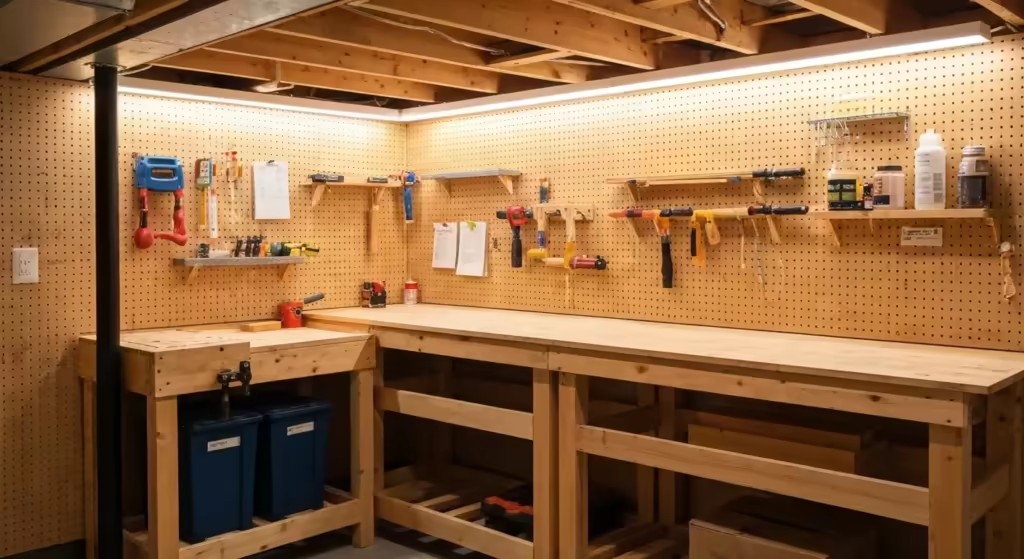I’m a veteran retired in my 50s! These are my life-saving financial tips:
For those who are new here and just stumbled upon this article, I am Billy, a part-time blogger and retiree, who wants to share tips and tricks from my own experience and help other people be happy with their finances. My journey wasn’t a straight line, and I made plenty of mistakes, but I’ve come out the other side with a life I truly love. I believe that by sharing the raw, unvarnished truth of my story, I can help you avoid some of the pitfalls and find your own path to financial contentment, whether that’s in retirement or any other stage of life.
That’s why for today I have planned to tell you my story, the story of a retired veteran who was taken to a “jobless” life sooner than initially thought. The word “jobless” used to fill me with a cold dread, a feeling of being adrift without an anchor. But you’ll probably say, “I bet you already planned your retirement life!” Sorry to disappoint you, but not. This is far from the truth. In fact, for most of my adult life, “retirement planning” was a phrase I mentally filed under “things to worry about later.”
I began thinking about retirement only on my 40th birthday, when everything hit me in the face like a train. (No joke!) It was a milestone that felt less like a celebration and more like a wake-up call. Suddenly, I saw the future not as a distant horizon but as a rapidly approaching reality. I had a mortgage, a son who would one day need college funds, and a retirement account that was looking painfully thin. The fear was real. Bear with me until the end of the article, and you will learn a lot of life-saving financial tips (trial and error), born from that initial panic and forged in the years that followed.
I am a retired veteran in his 50s who has worked for the government for many years, managed businesses, and navigated life like everyone else. I had a straightforward plan: work until I was 65 or 70, then relax. It was the standard script, the one we’re all handed. I figured I’d put in my time, collect my pension and Social Security, and maybe do a bit of fishing. It was a safe plan, an unimaginative plan, and one that I was perfectly content with.
However, my wife had another plan regarding retirement, and I didn’t know about it until the last minute. If you’re married too, you know what I mean. Her dreams were a little bigger, a little more colorful than mine. When I lost my job in 2022, a casualty of corporate restructuring, my world felt like it was crumbling. I saw failure and uncertainty. But instead of being angry with me or panicking, she spotted an opportunity where I saw insecurity. She saw freedom where I saw a frightening void.
We had discussed her dream of living on the road full-time and retiring early since purchasing a small camping trailer in 2002. It was always a “someday” conversation, a romantic notion we’d bat around on summer evenings. With our son, we traveled throughout the Western United States and Canada over the years, creating a lifetime of memories on those two-week vacations, but she wished for more. She wanted “someday” to be now, and with my unexpected unemployment, the biggest barrier—my job—was suddenly gone.
But enough with spoilers; I just wanted to give you a little bit of insight into how a veteran who retired in his 50s managed to be responsible for giving other people financial tips regarding retirement. It wasn’t because I was a financial genius; it was because I was forced to learn, adapt, and make smart decisions under pressure. Let’s start!

Changes came in waves (and I didn’t realize that)
Since I said that this article will be solely based on my true story, I will start with the beginning, how things started to change from the birth of my grandkid and end with me being unemployed and overwhelmed with no picture of the future. It’s funny how life’s biggest shifts often start with the smallest ripples. For us, that ripple was a phone call.
Our home was located in Asheville, North Carolina, on a large lot with a stunning view of the Blue Ridge Mountains. We had poured our hearts into that place. I built the deck myself, and my wife had a garden that was the envy of the neighborhood. We were very happy here, and I, for sure, wasn’t exactly ready for what was about to change. Our life was nice, quiet, and modest. We went to our daily jobs (until my wife had other plans); we worked a lot, but we also took the mandatory vacation once a year. Finances weren’t wow, but we managed to maintain a nice lifestyle. We were comfortable, perhaps a little too comfortable.
When my son and his wife had a kid, my wife decided to go on a solo trip because I was working. She needed to see her grandbaby, and I couldn’t get the time off. Little did I know that the trip to Boise, Idaho, would be life-changing for both of us and I would soon be a veteran retired in his 50s. I became a grandfather, and a new chapter was soon to unfold. When my daughter-in-law sent me pictures of my wife with the baby a few days into her visit, I noticed a smile I hadn’t seen in a long time. It was a look of pure, unburdened joy, a radiance that reached her eyes and reminded me of the woman I first fell in love with. A powerful thought struck me: I wanted her to look that happy all the time.
Planning our move began as soon as she got home. She laid out her case, not with pressure, but with passion. She spoke of being present for our granddaughter’s childhood, of trading our stationary life for one of adventure and closeness to family. My job loss wasn’t a catastrophe; it was a sign. Although it needed some work before we could sell, our house was in good condition, so the small reparations didn’t cost me a fortune. We’re talking a fresh coat of paint in the main rooms, fixing a leaky faucet, and re-staining the deck I’d built years ago. We finally listed the house, and to my surprise, we also found a buyer pretty quickly, and in less than a week, everything was ready to be sold.
Selling the house and making a travel budget
We sold the house to some very nice people, a young family just starting out, and we were happy about this thing because we didn’t want our nest to end up in some lazy people’s hands. It felt like passing a torch, which made the difficult process of letting go a little bit easier. That house held so many of our memories, but we were determined to make new ones.
From the entire amount of money we got from selling the house, we kept a portion available for urgent needs while guaranteeing our long-term security by rolling the proceeds into our IRAs and savings. This was a critical step. We essentially converted the physical asset of our home into a financial asset that could generate income. It was the foundation upon which this whole new life would be built. The goal wasn’t just to have a pile of cash, but to make that cash work for us for decades to come.
We needed the ideal setup for our new way of life—something cozy yet functional and not very extravagant. We spent weeks diving into research, watching countless YouTube videos, and reading forums. We downsized from a big house to a well-equipped travel trailer, choosing a Forest River fifth wheel that was easy to tow and had lots of space. The layout felt like a small apartment, which was important to us since it was going to be our full-time home. We combined it with a used Ford F-250, which is a dependable and reasonably priced choice for moving to our new house. We found a great deal on a model that was a few years old but had been meticulously maintained by its previous owner.
It was finally happening for me, my amazing wife; our new chapter was about to begin! As a veteran retired in his 50s with an extraordinary road map to explore in front of me and a very excited wife ready to travel any minute, I had to do calculations and find solutions for how to maximize our budget. It wasn’t easy, but hey, we managed. The reality of a finite pool of money was daunting, but it also forced us to be incredibly intentional with our spending.
Predictable monthly expenses were our top financial priority, so we concentrated on a few crucial tactics. The first and most important was becoming debt-free. Before we set out, we reduced our debt. We minimized our belongings to fit in the RV, paid off our credit cards, and sold anything we didn’t need through online marketplaces and a big garage sale. The feeling of cutting up those credit cards once they hit a zero balance was incredibly liberating. That meant we wouldn’t have to pay for storage units or incur needless costs, and more importantly, no high-interest debt payments would be eating away at our monthly budget.
I was on a quest to find discounts, even if they were small
Let’s be honest, no matter how good you are with money, seeing a big discount for a certain product or service is a blessing. Especially in this era where every single thing is expensive as hell. When you’re on a fixed income, every dollar saved is a dollar you can use for fuel, food, or fun. I made it my personal mission to become a master of saving money.
That’s why one of my best pieces of advice regarding financial tips is to use discount programs to cover your regular expenses. This is what we did! As a veteran, I made sure to ask about military discounts everywhere we went—you’d be surprised how many places offer them, from restaurants to auto parts stores. It doesn’t hurt to ask! We also got a National Parks Senior Pass, which gives us lifetime access to all national parks for a one-time fee.
We enrolled in memberships like Passport America and Thousand Trails, which saved us hundreds of dollars in campground fees, and took advantage of the long-term stay discounts offered by many RV parks. Some months, these memberships cut our accommodation costs by 50% or more, which is a massive savings. We also use apps like GasBuddy to find the cheapest fuel along our route, which makes a real difference when you’re driving a big truck.
To make sure we get the most out of every dollar we spend, we also use cash-back credit cards for groceries, gas, and RV maintenance. We have one card that gives us 3% back on groceries and another that gives 4% back on gas. We pay the balance in full every single month, so we never pay interest. It’s like getting a small, automatic discount on everything we buy, and those cash-back rewards add up to several hundred dollars a year.

I hired a professional to help me manage the money for retirement
Rarely things will go as planned, or if you’re a bit luckier, they will. However, if you feel the ground you’re standing on is a bit shaky and you feel like retirement is suffocating you, leaving you hopeless, don’t be afraid to ask for help. I’m a proud man, and I like to think I can handle things myself, but I knew I was in over my head with this. The stakes were too high to rely on guesswork.
To make sure you have a plan that will not only let you live your best life but also help you make your money last, it is essential to have help from someone knowledgeable about military retirement. We interviewed three different financial advisors before we found the right one. We needed someone who understood our unique situation—a veteran’s pension, early retirement, and a mobile lifestyle. Selecting a knowledgeable advisor who will work with you to reach your objectives while looking out for your best interests is crucial. A good advisor should feel like a coach, not a salesman.
I hired a professional to help me manage our finances for retirement. After all, I didn’t want to spend my retirement days staring at financial reports and stock charts because, to be honest, I didn’t even know how to do the calculations properly without missing something. My top goal has always been to protect our assets over time while producing a consistent income. Our advisor helped us build a portfolio that was conservative but smart. With the help of the professional, we managed to have a combination of dividend-paying stocks, municipal bonds, and moderate-growth stocks. He explained it to us in simple terms: the stocks are for long-term growth to beat inflation, and the bonds and dividends provide a steady, predictable income stream, like a paycheck.
Among the greatest benefits? Municipal bonds allow a sizable amount of the income in our portfolio to be tax-free, which helps us stretch our budget. That was a game-changer we never would have known about on our own. In addition, we have a healthy emergency fund in a high-yield savings account, a Roth IRA, and traditional IRAs. Our advisor called the emergency fund our “sleep-at-night fund,” and he was right. It covers six months of our estimated expenses, so we don’t have to panic if a major repair comes up. I also experiment with low-risk investments in my small, self-directed portfolio, which scratches my itch to be more hands-on without risking our core nest egg.
One thing is for sure: we are not rich people, but we have enough to be happy and tranquil in this new chapter of our lives. We will eventually have to choose when to begin taking withdrawals from our IRAs and applying for Social Security, according to the broker. However, he showed us detailed projections demonstrating how much our accounts could grow if we wait, so we don’t have to rush that.
Not many people can afford to hire a professional to help them manage their retirement funds, but luckily we have books for this. How to Invest for Retirement: A Simple Path to Retiring Rich, Independent, and Free by Anthony S. Park is a book that is a more affordable option than hiring a professional financial advisor, yet it contains valuable and insightful information. It breaks down complex topics into actionable steps. It’s easy to read and understand, and if you’re interested, you can purchase your copy for $13.99. Knowledge is the best investment you can make in yourself.
Never neglect your health!
Now you may ask, what does this have to do with your financial tips, you old man? Well, if you’re planning on retiring earlier than you should, then consider your health insurance, too. A single major medical event can wipe out years of careful saving, so this was one of our biggest concerns. It’s a non-negotiable part of any sound financial plan.
For us, this was very important. Besides all the money we had to have for the road, fuel, etc., we were also aware of the fact that we weren’t yet eligible for Medicare. This gap between early retirement and Medicare eligibility at 65 is a huge financial hurdle for many. We chose a high-deductible health plan (HDHP) with a Health Savings Account (HSA). In addition to providing us with tax advantages and a safety net for medical costs, it reduced our premiums. The HDHP keeps our monthly insurance bill low, and the HSA is a fantastic tool. It’s triple-tax-advantaged: the money you put in is tax-deductible, it grows tax-free, and you can withdraw it tax-free for qualified medical expenses. It’s a medical emergency fund and a secondary retirement account all in one.
Always think about taxes
I don’t know how to put it, but there is no chance as a retiree we can skip taxes. We absolutely cannot and the sooner you understand this the better. Taxes in retirement are far more complex than when you’re earning a regular paycheck. It’s true that as a veteran you might pay less, or you will have certain benefits depending on your situation, but knowing how your “money actions” can affect your overall tax burden is crucial because it might even become more complicated. For example, our domicile is now in a state with no state income tax, a strategic decision that saves us thousands each year.
There may be tax repercussions when required minimum distributions are taken and funds are taken out of accounts. Taking a large withdrawal from our traditional IRA, for instance, counts as taxable income and could push us into a higher tax bracket for the year. It could also make more of our Social Security benefits taxable down the road. To make the best decisions and prevent paying out more than you anticipated or planned, it’s critical to know what will be incurred in advance. This is another area where our financial advisor is worth his weight in gold, helping us plan withdrawals strategically to minimize our tax liability.
Keep your expenses in check
As a veteran retired in his 50s, ready to hit the road and have a home on wheels, I had to be careful of how much I spent. Freedom isn’t free; it requires discipline. Besides having a great professional who is available anytime to help me if I have questions regarding my retirement funds, the money my wife and I are spending is my duty to handle. We track every single expense using a simple budgeting app on our phones. It takes a few seconds a day but gives us a powerful overview of where our money is going.
We’ve talked, and we set a 4% rule (this is my true story, and this is what worked for us, but you are free to set your own percentage rule). This is a well-known guideline suggesting you can safely withdraw 4% of your investment portfolio’s value in your first year of retirement and adjust for inflation each year after. The 4% rule is intended to keep up with inflation, but it cannot tolerate significant increases in spending beyond that point. It provides a guardrail to ensure our money lasts.
Even though the occasional splurge is normal, making it a habit might damage your finances. I suggest tightening your belt if you are unable to return to work for several reasons. For us, this means balancing a nice dinner out one week with simple, home-cooked meals the next. This may vary from person to person, depending on your retirement budget and how much you want to spend on unnecessary items. The key is awareness and conscious choice.
Even though our house is currently on wheels, we continue to lead ordinary lives. We have costs such as paying for a campground shower or using a coin laundry every few weeks. We have to budget for propane to run our fridge and stove, and for regular RV maintenance like checking seals and tires. To stay in touch, communicate, and view my son and his family through Zoom, we also pay for Starlink internet, which was the best price-wise and connection speed, ensuring we can connect even in remote areas.

Invest if you can (and don’t be afraid of it)
This new chapter of our lives began with so many rapid transitions I thought it was a dream. And even now when I write about it, I can still agree with this. The idea of “investing” used to scare me. I thought it was only for wealthy people in suits, but I’ve learned that’s not true. Investing is simply making your money work for you.
We were lucky enough to sell our home in less than a month; we had a little bit of savings, and we also had the 401(k), Roth IRA, and traditional IRA. We also wanted to invest in something, but we weren’t sure what was profitable, so we talked to our financial advisor. He helped us understand that the goal wasn’t to get rich quick, but to grow our money steadily and reliably over the long term, protecting its purchasing power from inflation.
I’m telling you this because it’s never too early to begin investing and saving. My biggest financial regret is not starting sooner. Even if you can only invest $50 or $100 a month in your 20s or 30s, do it. Thanks to the magic of compound interest, that small amount can grow into a substantial sum over several decades. You won’t have the same source of income when you retire. To ensure that you can enjoy your golden years in total financial comfort, you should begin saving for retirement early and frequently. Consistency is far more important than timing the market.
Even if you’re eligible to withdraw money penalty-free…
…Try to stay away from this as long as you can. Why? As previously stated, we discussed everything with our advisor and inquired about the maximum amount of time we could put off our withdrawals. And let me tell you why. Think of your retirement account as a snowball rolling downhill. The longer you let it roll, the bigger it gets. If you start chipping pieces off too early, it never gets the chance to build that powerful momentum.
When funds are taken out of your retirement account, they are no longer eligible for (possible) compound interest. Every dollar you withdraw is a dollar that stops working for you. It might make sense if you need the distributions to pay for living expenses after being laid off or if you retire early. However, it might not make sense to start taking withdrawals from your 401(k) if you find another job and pay your expenses that way. Since we can currently live on my pension, blog income, and savings, we are letting our main investment accounts continue to cook, untouched. Our advisor showed us that waiting from age 62 to 70 to claim Social Security can also increase the monthly benefit by more than 70%. Patience pays off.
Create a retirement you’ll love to live in
Do I regret making these life decisions for our new chapter? Absolutely not. I wish I had embarked on this adventure earlier, but I count myself fortunate. Things worked out even though I should have planned for retirement sooner. This journey has taught me that retirement isn’t an ending; it’s a transition to a different way of living.
I draw back the shade beside my bed every morning, in part to let in the morning light and in part to remind myself of our location. The view is ever-changing. One week it’s the rocky coast of Maine, the next it’s the vast desert sky of Arizona. It’s a constant, gentle reminder that our life is an adventure.
We spend one full day camping in Tennessee’s breathtaking hills and the next day touring New England’s historic towns. We explore new trails, eat local cuisine, and go to museums, historical sites, and unusual celebrations, such as Nebraska’s yearly Sandhill Crane Migration Festival. We’re not just seeing the country; we’re experiencing it in a deep and meaningful way that a two-week vacation never allowed.
We also make sure to get our granddaughter some books or small items to send her, and then we see each other on Zoom and talk about what she likes the most. We sent her a large map of the USA and she puts a pin on our location every week. She is constantly full of stories and eager to share them with us, whether it’s about a funny moment at school or her most recent drawings. These connections, even from afar, are the true treasures of this lifestyle.
As a veteran who retired in his 50s, a husband, and a grandfather, I can say that my life is pretty awesome. And I cherish it the most! I’ve traded a large house for a huge backyard, and job security for life security.
Bottom line:
Life is more than just working 9 to 5 for a bad employee, paying bills, and minding inflation, watching horrible news on TV, eating, sleeping, and repeating. That is existing, not living. For too many years, I was stuck in that cycle, thinking it was the only way.
Discovering who you are, and your interests, traveling more, spending more time outside, and being pleased with and thankful for your life should all be important aspects of living. It’s about consciously designing a life that aligns with your values, not just accepting the one that happens to you. It’s about prioritizing experiences over possessions.
Life could be so much simpler, but we as human beings like complicating it A LOT. We chase bigger titles, bigger houses, and more stuff, often at the expense of our time, health, and relationships. Take some words of advice from a fellow retiree just like you: You deserve the best things in life! And the best things aren’t things at all. Trust yourself a little bit more. Take that first small step toward the life you truly want.
Please leave a comment below if you have a special retirement story to share as well. I’d love to hear it.
Related useful article: Is Your Water Bill High? Here’s How to Save More Money.














